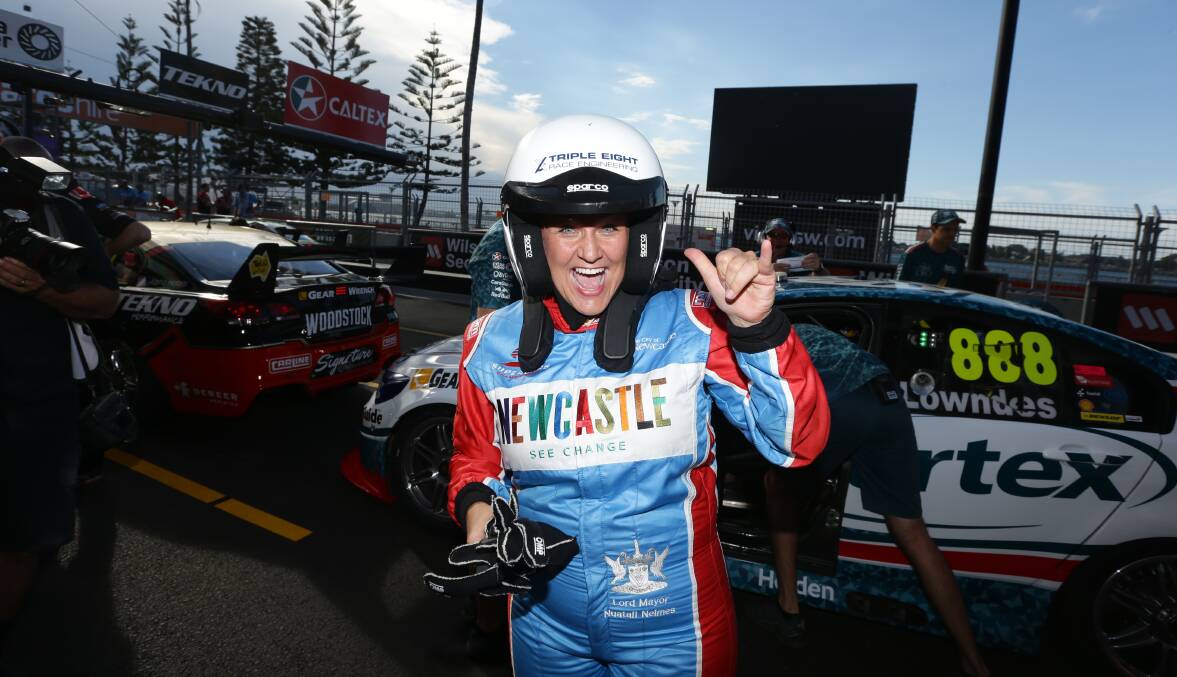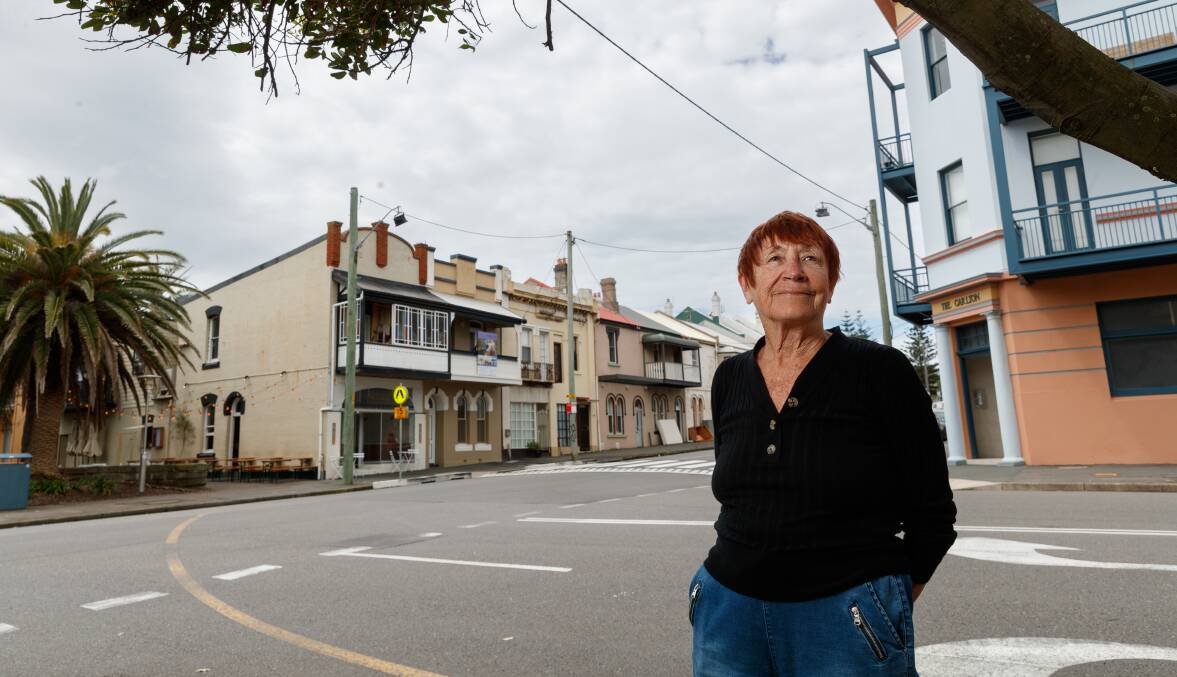Supercars has abandoned next year's Newcastle 500 after the NSW government failed to break an impasse with Newcastle council.
Newcastle lord mayor Nuatali Nelmes said on Thursday that Supercars chief executive Shane Howard had called her on Monday to say that the motor racing organisation was moving ahead with a back-up plan to hold the first event of the year in Bathurst.
A Supercars spokesperson said: "Supercars held productive discussions with Newcastle City Council earlier this week regarding the future of the event.
"As part of that discussion, it was mentioned that, in the event Newcastle cannot proceed in 2024, alternative options have been explored.
"We express our gratitude to the NSW government for their continuous support and understanding.
"Supercars would like to confirm its commitment to racing in Newcastle in the future, and conversations in that regard are already under way.
"Regarding the 2024 season-opening event, Supercars will provide information when all details are confirmed."
Asked on ABC radio about the race's long-term future, Cr Nelmes said: "At this point in time there is no agreement with the NSW government and the local state MPs that represent all of us here in Newcastle in this region in the state parliament.
"They would have to have some agreement before we would even look at anything in the future.
"Tim [Crakanthorp] has come out quite clearly not supporting the event [following] the consultation that we have done in his particular area, and we absolutely respect ... his decision.
"And there is no way we'll be going ahead with an event of that size and scale when your local state representatives don't support it."
The cancellation for 2024 follows weeks of public wrangling and blame-shifting between the council and government over the race's future.
The event appeared headed for the scrap heap after community consultation this year revealed significant opposition to a five-year extension.
The government, facing budgetary constraints, proposed a one-year deal for 2024 while it worked on a new five-year contract, but the council rejected this option because it did not align with the consultation.

On Wednesday, Premier Chris Minns blasted the council's resistance to a one-year deal as "nonsensical".
"Look, we want Supercars in Newcastle, and we've commenced discussions about a multi-year deal with that organisation," he said.
"They're happy with that, and, really, I think it's time for the council to make a decision about it.
"I mean, I figured they've [Newcastle] got a unique event on the foreshore in Newcastle [and] it's hugely popular.
"We're committed to funding and have provided funding for this year, and we've commenced negotiations for a multi-year deal with Supercars.
"If the council doesn't want to go ahead with it, they're going have to own that decision and announce it publicly."
Cr Nelmes told the Herald on Thursday that Supercars and the government had cancelled the event.
"Shane Howard called me on Monday and said it wasn't going ahead," she said.
"He said he was briefing his team owners on Wednesday then submitting the race calendar to the motor racing authority on Friday, so it was unexpected that both the NSW government and Supercars were still requesting council's input on Wednesday when they had already made the decision."
Tourism Minister John Graham laid the blame at the council's feet, saying the government had demonstrated its support for the Newcastle 500 to return in 2024 and had shown "good faith in commencing discussions around a longer-term agreement".
"We have been calling on Newcastle City Council to make a decision on the race going ahead and unfortunately they seem to have done so by cancelling it today," he said.
Newcastle MP Tim Crakanthorp said at the height of the public dispute that he did not support the race returning for one or five years after the community consultation showed 59 per cent of 11,000 survey respondents opposed it.
He reiterated that position on Thursday, saying the community had "clearly said no".
"The uncertainty about the future of the race has been distressing for the local community and the decision by Supercars has now alleviated that distress," he said.
"Newcastle has always had and will continue to have so much potential for tourism events.
"Supercars is not the first major event in Newcastle and it certainly won't be the last. I look forward to what the future holds for our city."
The Newcastle 500 began in 2017, drawing large crowds while attracting criticism for a nine-week bump-in and bump-out period which closed streets and affected access to parking, houses, businesses, beaches and parks.
Newcastle East Residents Group, which fought a long campaign against the street race, welcomed the cancellation.
"I'm terribly relieved we're getting rid of it. What a relief," spokesperson Christine Everingham said.
"There's no way they're coming back. I don't think there's any chance at all."
Dr Everingham said the race's demise had become a "blame game" between the government and council.
"No one really wants it, least of all us," she said.
"I was concerned about some of the elderly people here. The problems they had getting their support services in, getting to hospital, the worry they had.
"It was awful, and the contempt. Neither the government nor our council gave them any consideration whatsoever."

Race fan Johnny Clifton, who lives in an apartment opposite Newcastle beach, said he hoped the government, council and Supercars could reach an agreement to bring the event back in future years.
"I really enjoy the event. I think it's the best thing every year. It brings a lot of people into town. It's got a great atmosphere," he said.
"It's pretty much the only big event we've got here. A lot of people in our building get together and watch it.
"From what I saw last year everyone was having a good time. It is a bit of a pain before with them building it. They could probably do that a bit better.
"Other than that I think it's the best thing for Newcastle."
Long-time Scratchley's restaurant owner Neil Slater welcomed the decision to cancel the event, saying it discouraged customers from coming to inner-city Newcastle.
"The reality with the Supercars that no one seems to really get their head around is the set-up and break-down is something that takes a lot of time and creates with the public a view that you better not go to town because it's too bloody hard to get in," he said.
"They find somewhere else to go.
"The race itself and the people who love it, that's fantastic, and I really think the city looks great with it, but the time it takes for the set-up and break-down is the issue.
"It has that impact in the long-term."
Mr Slater closed his waterfront restaurant and went to Seal Rocks for the weekend during this year's race in March.
"The lag after the race this year was infinitely more difficult for us to deal with than it was when it was in November, when we lost the most money," he said.
"It was like someone turned off a tap, and it took nearly three months for people to start feeling comfortable to come back in."
Business Hunter chief executive Bob Hawes said businesses would be "relieved" to have certainty over next year's race.
"Crucially, businesses need time to plan, and the continued uncertainty could have influenced businesses to move out of the CBD," he said.
"Similar to council, we recognise the event is a showcase for the city, broadly benefiting the NSW and Hunter region visitor economies, stimulating economic activity and expanding the range of cultural and entertainment experiences available in the Hunter.
"But while many businesses derive clear and considerable benefits from the event, others are confronted with substantial and now well documented negative and distressing impacts."
Mr Hawes said the government and Supercars would have to come up with ways to alleviate these burdens if the race returned in 2025 for another five years.
"We now have clear and substantial insight, via the consultation, on the critical issues that need to be remedied, including conducting a proper business impact assessment, condensing the eight-week bump-in and bump-out period, and making provision for a package to support those businesses that are substantially negatively impacted by the event.
"An eight-week period of negligible trade for five consecutive years extrapolates to almost an entire year of disrupted trade for businesses which will range in effect from distressing to fatal.
"It's unreasonable to expect those businesses to shoulder that burden."







